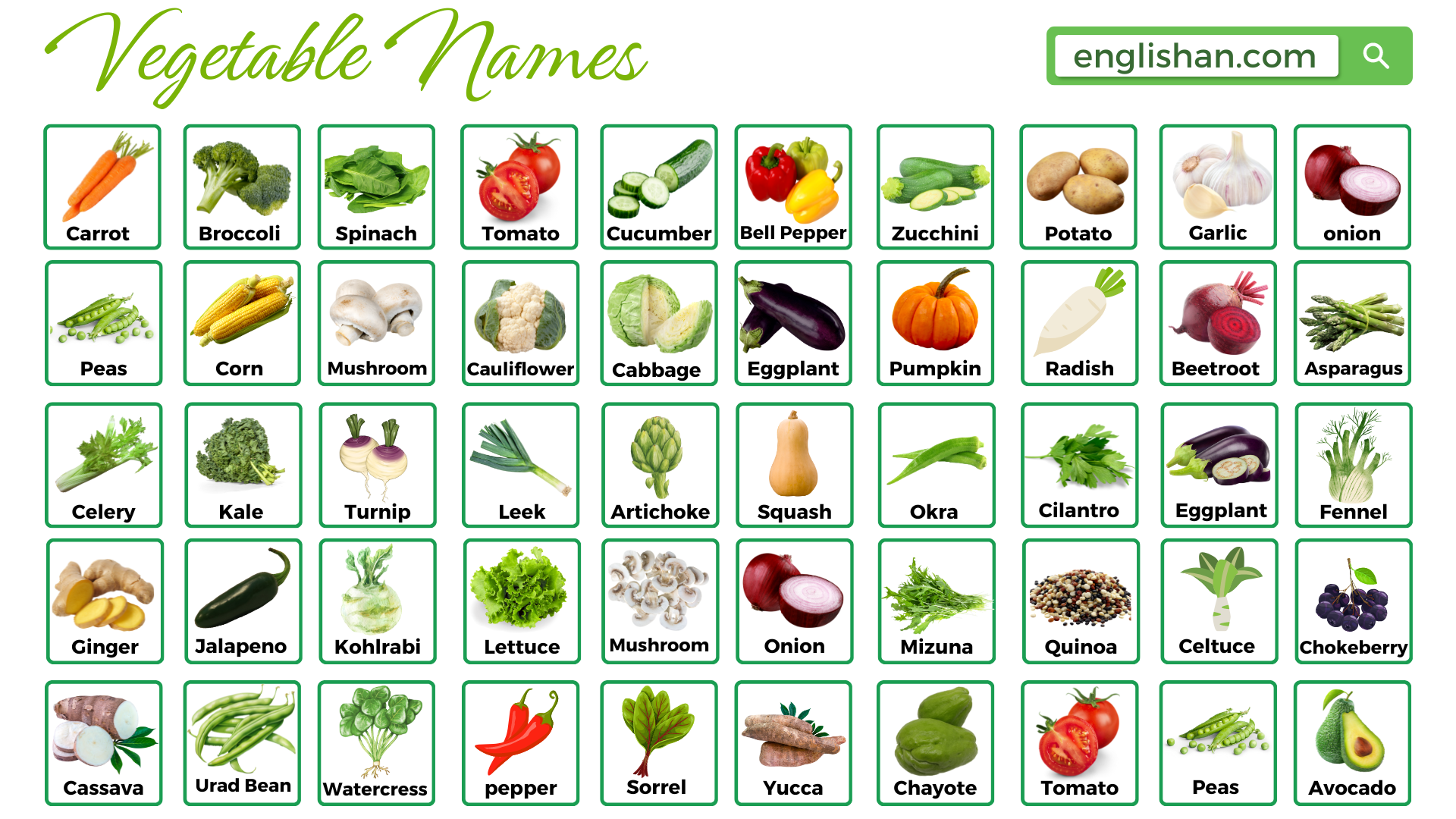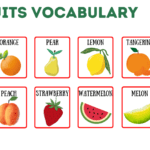Cooking uses plants like leafy greens, roots, bulbs, and stems, and vegetables names help identify them in everyday dishes. Common varieties such as carrots, spinach, onions, and broccoli add unique tastes, textures, and nutrients. They may be served raw, boiled, roasted, baked, or stir-fried into meals.
In this lesson, you will learn vegetables names with pictures to use when talking about food in grocery stores, home kitchens, or recipe conversations.
Vegetables with Pictures and English Names
- Spinach
- Lettuce
- Swiss Chard
- Purslane
- Arugula
- Beet Greens
- Mache
- Endive
- Sorrel
- Kale
- Radicchio
- Carrot
- Beetroot
- Radish
- Turnip
- Lima Beans
- Parsnip
- Potato
- Celeriac
- Daikon
- Sweet Potato
- Taro
- Rutabaga
- Yam
- Ginger
- Jicama
- Horseradish
- Turmeric
- Salsify
- Cassava
- Broccoli
- Cauliflower
- Cabbage
- Mushroom
- Shiitake
- Kohlrabi
- Bok Choy
- Napa Cabbage
- Enoki
- Cremini
- Savoy Cabbage
- Broccolini
- Turnip Greens
- Maitake
- Morel
- Green Beans
- Peas
- Chickpeas
- Portobello
- Porcini
- Lentils
- Soybeans
- Black Beans
- Chanterelle
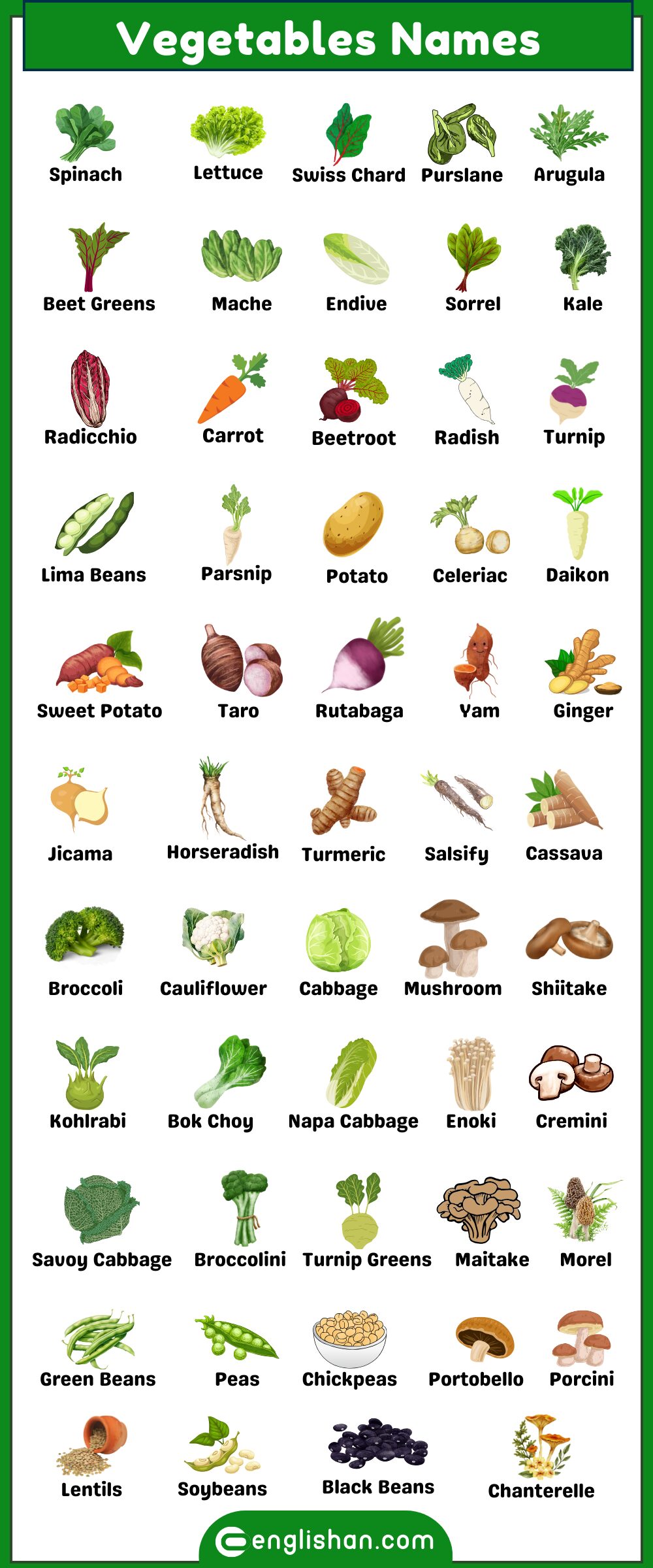
Leafy Green Vegetables
Green Leafy vegetables are the soft, green parts of plants. They are used in salads, soups, and cooked dishes. Below is a list of leafy vegetables:

Spinach
Soft green leaves rich in iron and vitamins; used in salads, curries, and smoothies.
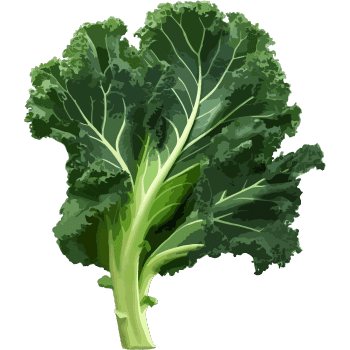
Kale
Curly green leaves with a bitter taste; high in antioxidants and great in stir-fries.

Lettuce
Crisp and light; used in salads and burgers; full of water and vitamins.

Swiss Chard
Colorful stems with dark leaves; slightly bitter; rich in vitamins and cooked in soups.
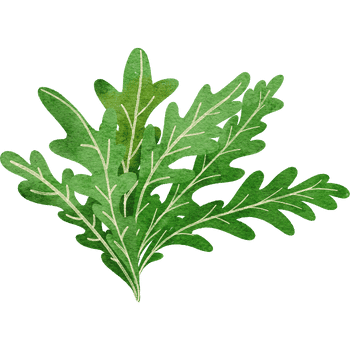
Arugula
Peppery leaves used in salads and pizza; adds strong flavor; high in calcium.
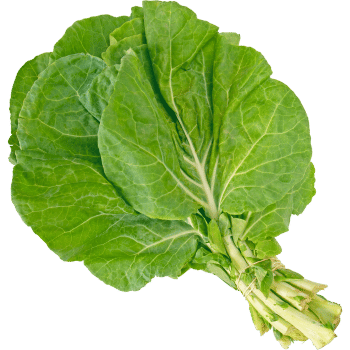
Collard Greens
Big green leaves with earthy taste; cooked slowly; supports bones and heart.
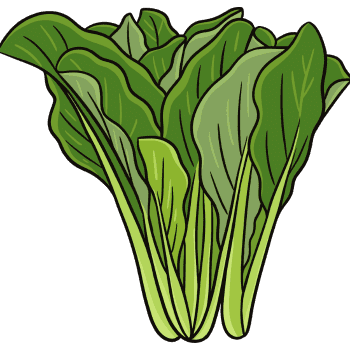
Mustard Greens
Spicy leaves used in soups and stir-fries; full of vitamins A, C, and K.

Watercress
Spicy and crisp; used in salads; boosts bones and immunity with vitamin K.
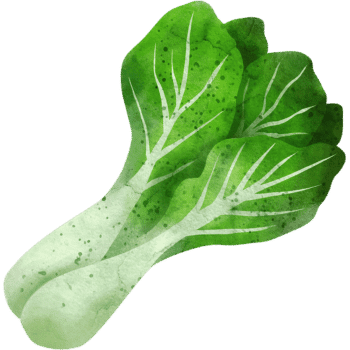
Bok Choy
Mild green cabbage with crunchy stalks; stir-fried or added to soup; high in calcium.e.
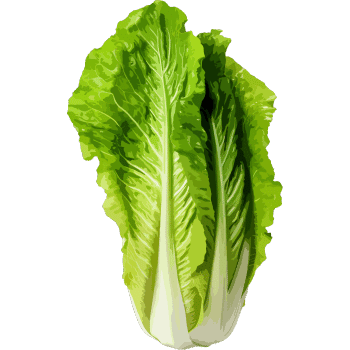
Romaine
Tall, crunchy lettuce used in Caesar salads; has lots of vitamin A and water.

Endive
Bitter, crisp leaves for salads and snacks; supports bones and digestion with fiber.

Dandelion Greens
Peppery bitter greens; support liver and digestion; cooked or eaten raw.

Mache
Soft, mild lettuce used in salads; rich in vitamin A and C for healthy skin.
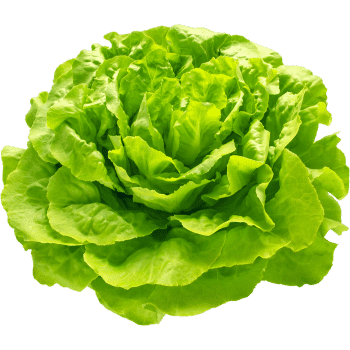
Butterhead Lettuce
Soft and smooth leaves with mild taste; perfect for wraps and salads.

Beet Greens
Bitter beet tops; full of iron and vitamins; often sautéed or added to soup.

Sorrel
Lemony green leaves; used in soups or salads; supports immune health with vitamin C.

Malabar Spinach
Thick green leaves with smooth texture; good for eyes and skin; used in curries.

Amaranth Leaves
Nutritious greens with sweet taste; high in protein and iron; great in soups and stir-fries.

Purslane
Crunchy and lemony; supports heart health with omega-3; eaten raw in salads.
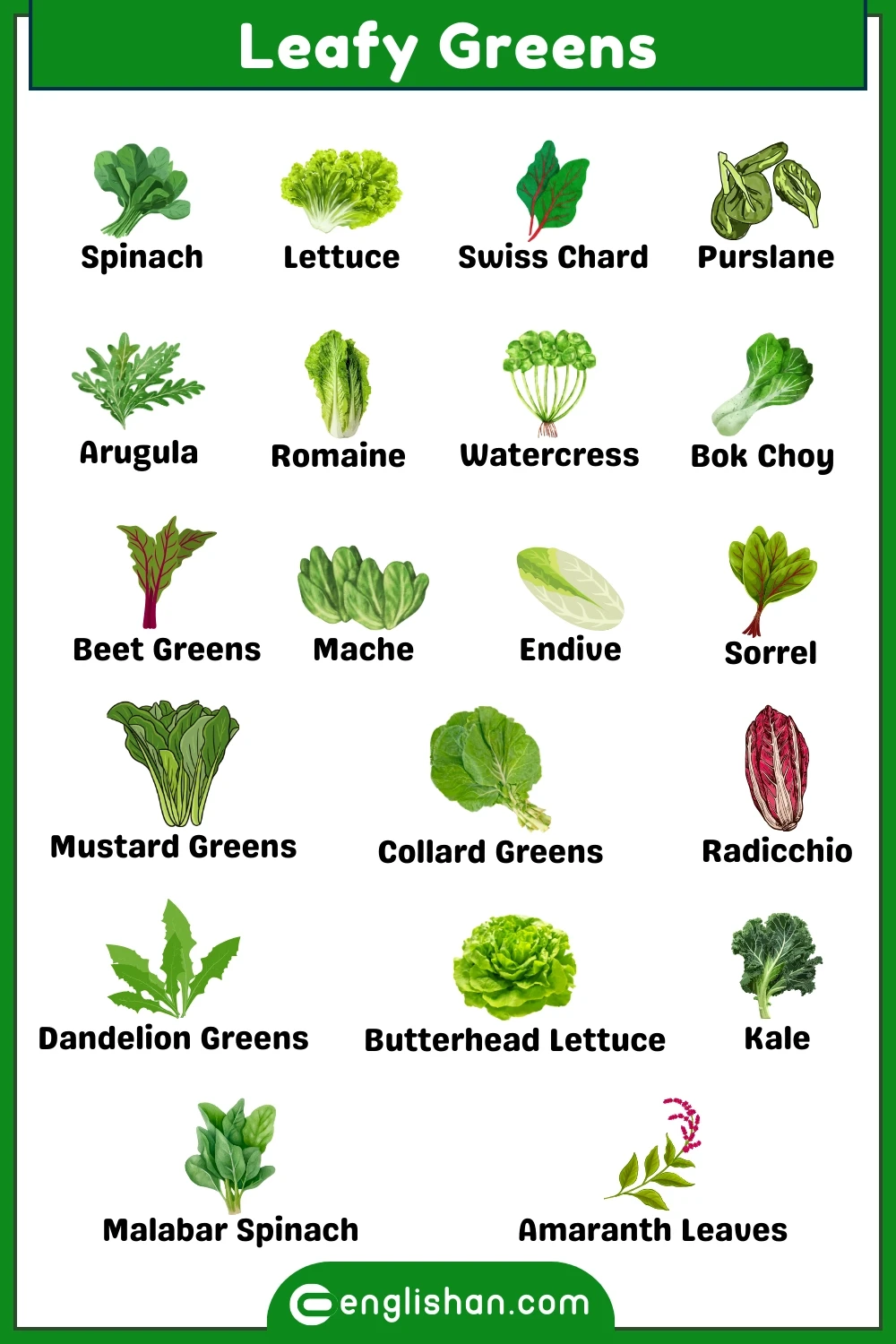
Root Vegetable Types and Their English Names
Root vegetables grow underground or just above the soil. Below is a list with their pictures:

Carrot
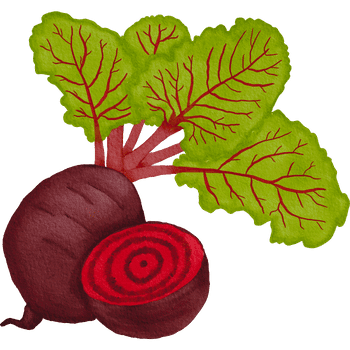
Beetroot

Radish

Turnip

Parsnip

Sweet Potato

Potato
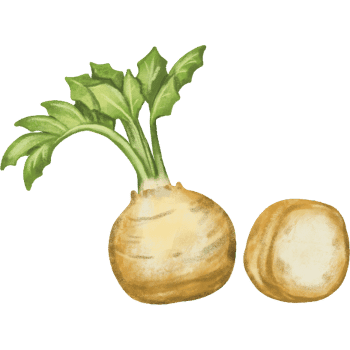
Celeriac

Daikon

Taro
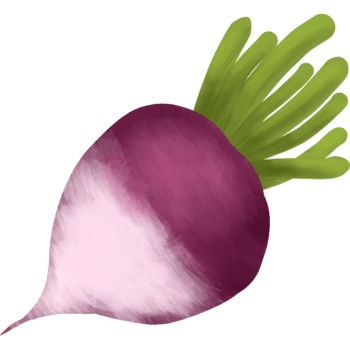
Rutabaga

Yam

Jerusalem Artichoke

Ginger
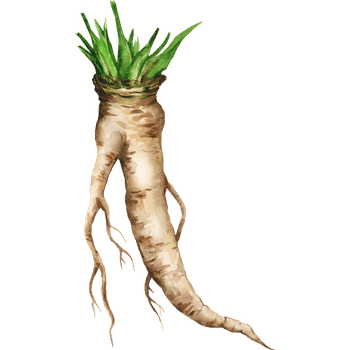
Horseradish

Turmeric

Cassava

Jicama
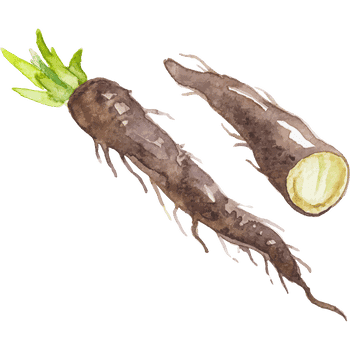
Salsify
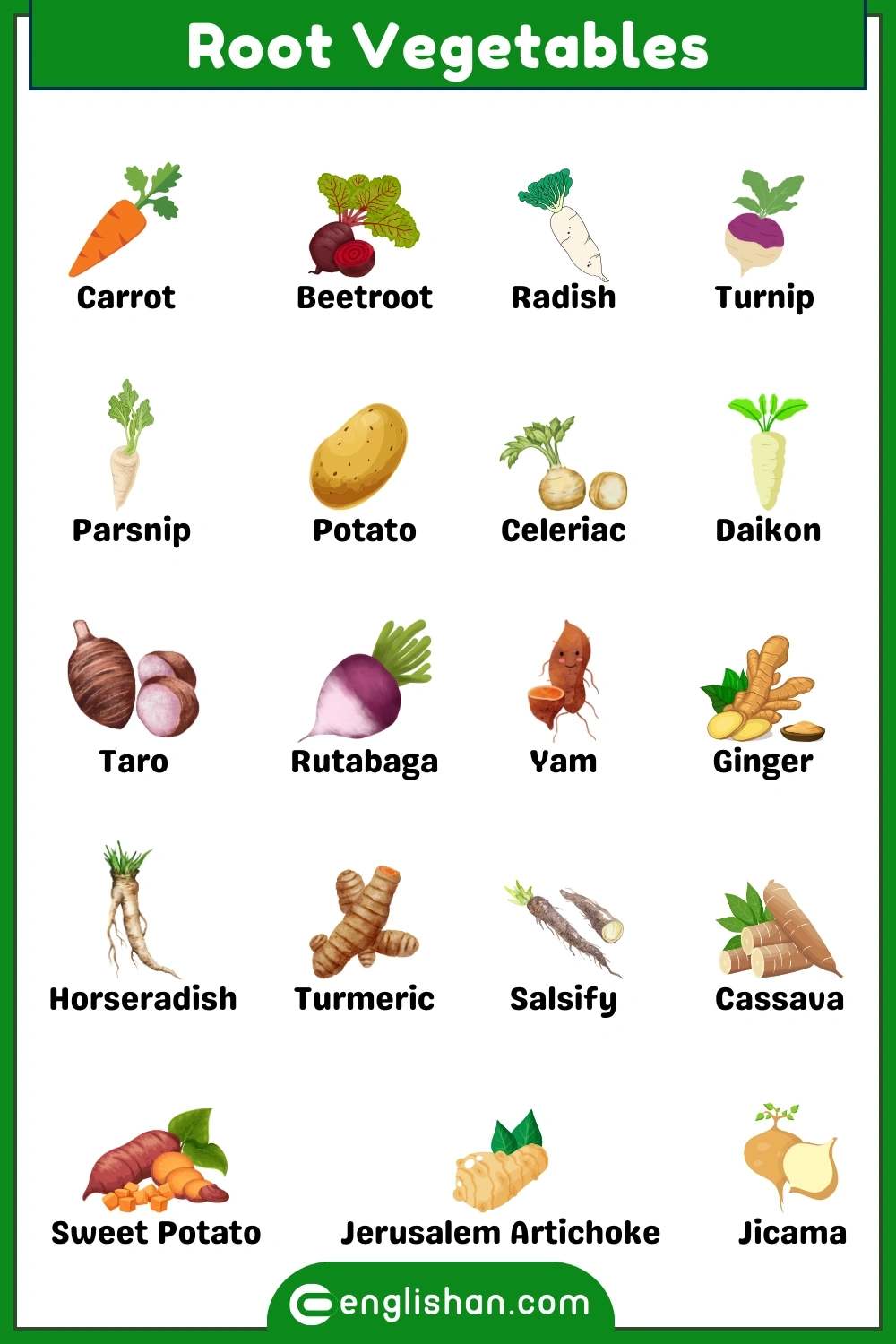
Cruciferous Vegetable Examples
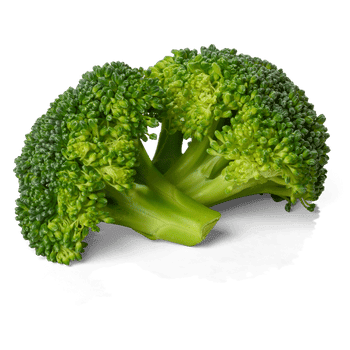
Broccoli
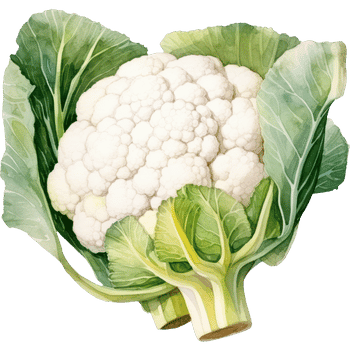
Cauliflower

Cabbage

Brussels Sprouts

Kohlrabi
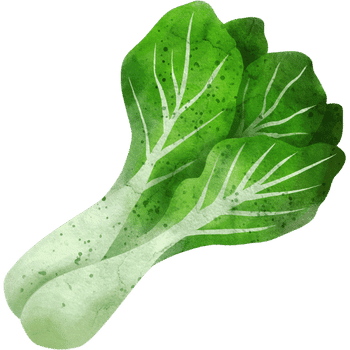
Bok Choy
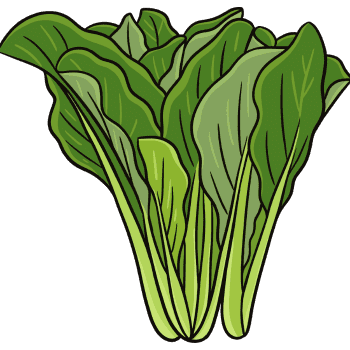
Mustard Greens

Napa Cabbage

Savoy Cabbage
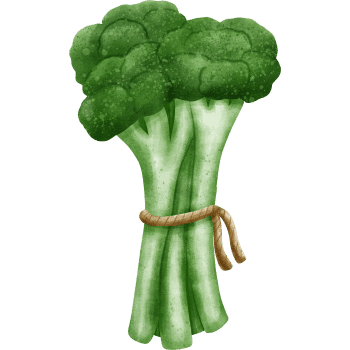
Broccolini

Turnip Greens
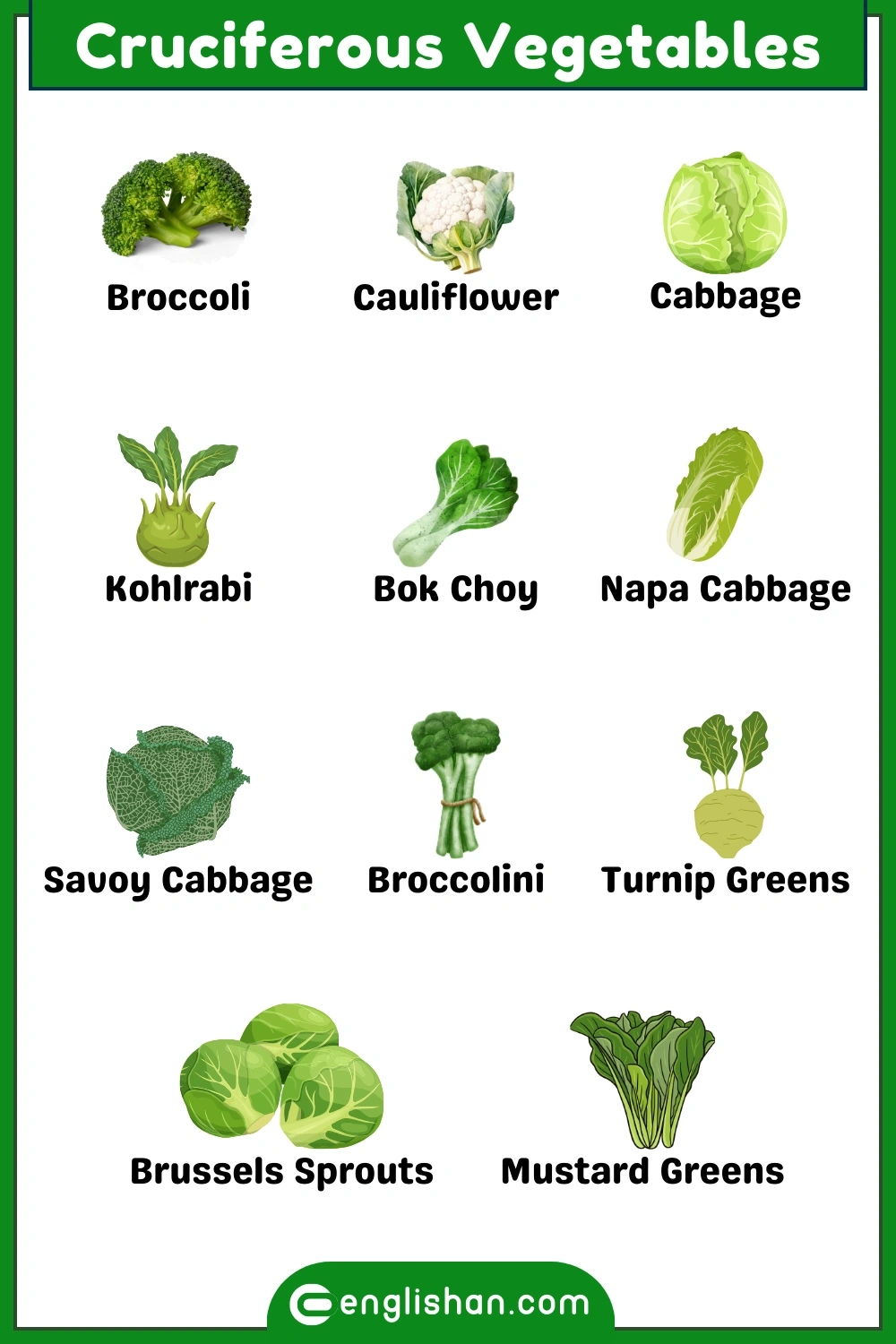
Marrow Vegetable Varieties with Names

Zucchini
Zucchini is soft and mild, great for grilling, stir-fries, and even baked dishes.

Squash
Squash has a mild, slightly sweet flavor and is available in Squash is slightly sweet and used in soups or roasts. It helps your eyes and stomach.

Pumpkin
Pumpkin is creamy and sweet, rich in vitamin A, and great in soups or pies.
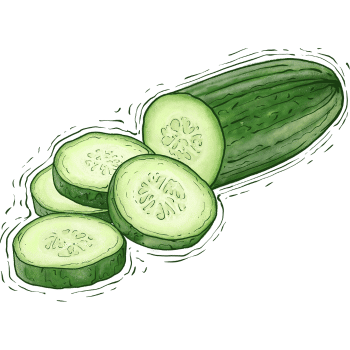
Cucumber
Crisp and juicy, cucumber is mostly water and perfect for summer salads or snacks.

Spaghetti Squash
Cooked spaghetti squash forms noodle-like strands and is a healthy, low-carb pasta replacement.
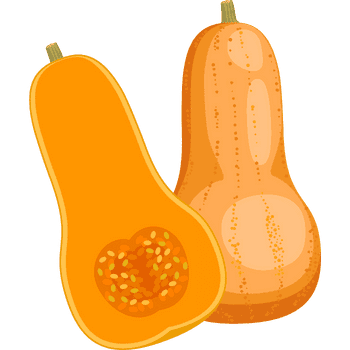
Butternut Squash
Sweet and creamy, butternut squash is roasted, souped, or mashed and helps your eyes.
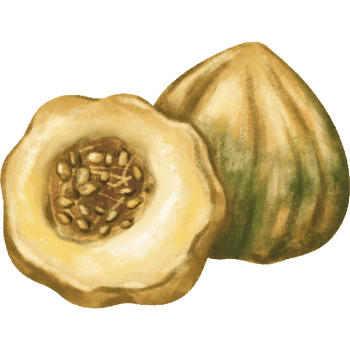
Acorn Squash
Acorn squash is nutty and sweet. It’s baked, stuffed, or souped and supports digestion.

Chayote
Chayote is crisp and mild, great in stir-fries or steamed, and helps your immune system.

Pattypan Squash
Pattypan squash is round and fun-shaped, mild in flavor, and delicious grilled or stuffed.

Luffa
Luffa is soft and fibrous when cooked. It’s stir-fried and helps clean your stomach.
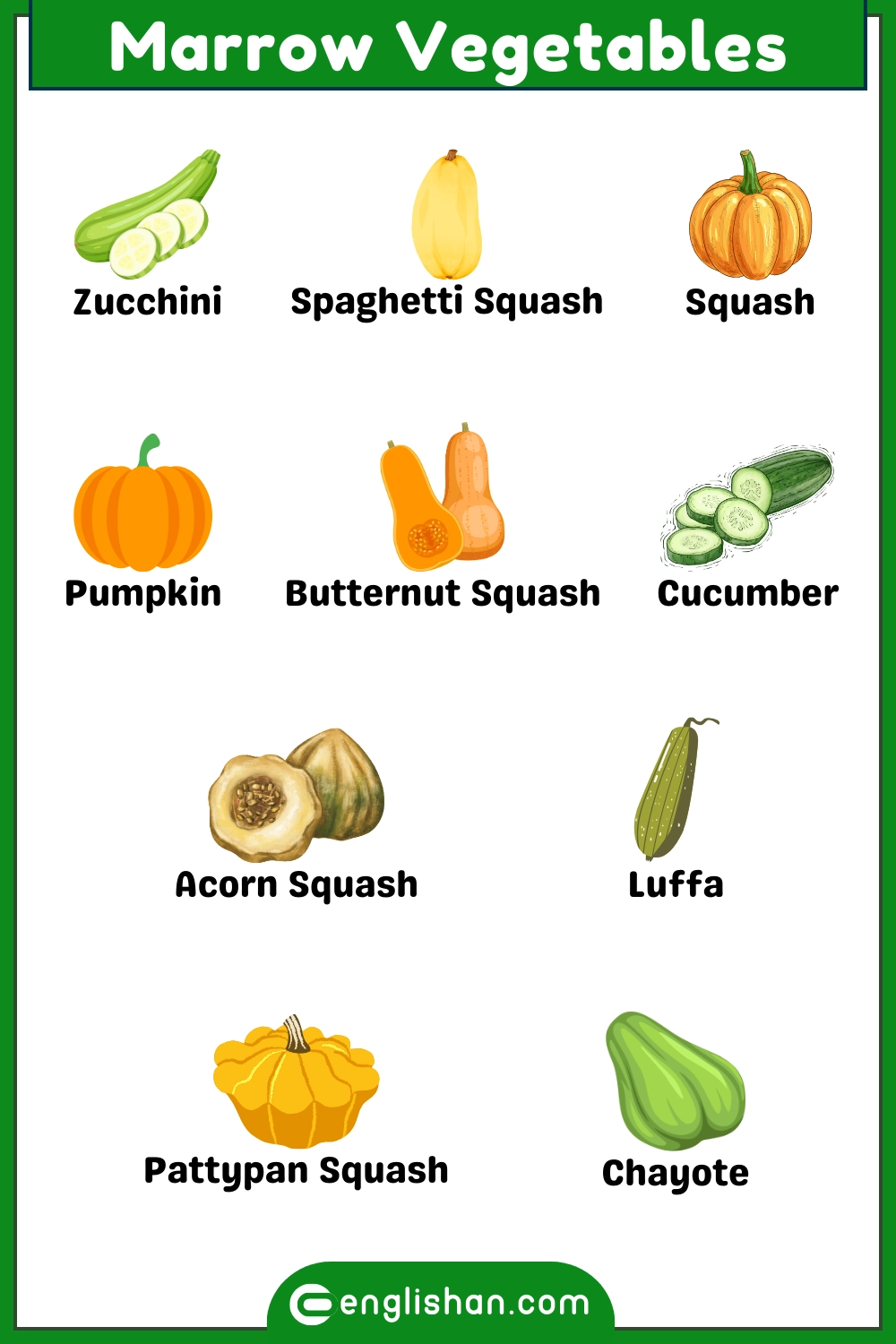
Vegetables in the Allium Family
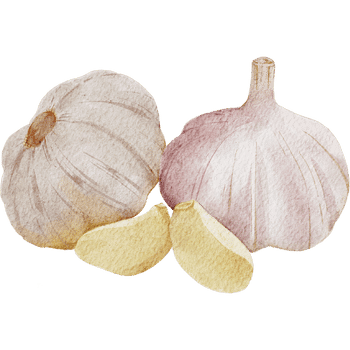
Garlic
Garlic is strong and spicy, used in cooking to boost heart health and flavor dishes.
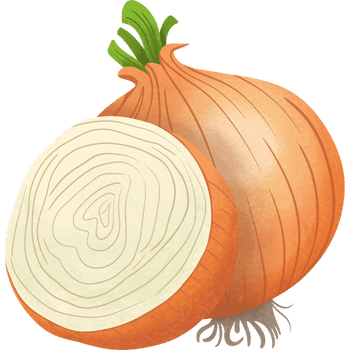
Onion
Onions are sharp raw and sweet when cooked. They’re used in soups, stir-fries, and curries.
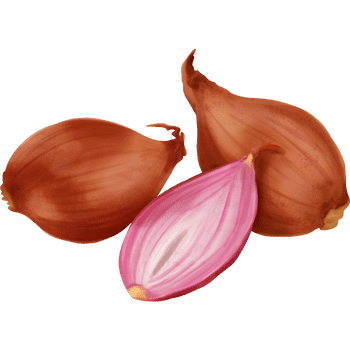
Shallot
Shallots are sweet and mild. They’re great in dressings and sauces for a soft onion flavor.

Leek
Leeks are sweet and soft, used in soups and stews. They help your heart and gut.

Chives
Chives are thin and mild. They’re chopped as garnish and add light onion flavor to food.

Spring Onion
Spring onions are soft and slightly sweet. They’re used raw or cooked in many fresh dishes.

Scallion
Scallions are crisp and mild. Common in stir-fries or salads, they support immune and bone health.
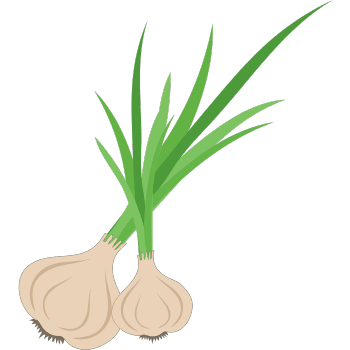
Elephant Garlic
Elephant garlic is big and mild. It’s roasted or used raw for gentle garlic flavor.

Ramps
Ramps are wild leeks with strong taste. They’re great grilled or in sauces and support immunity.
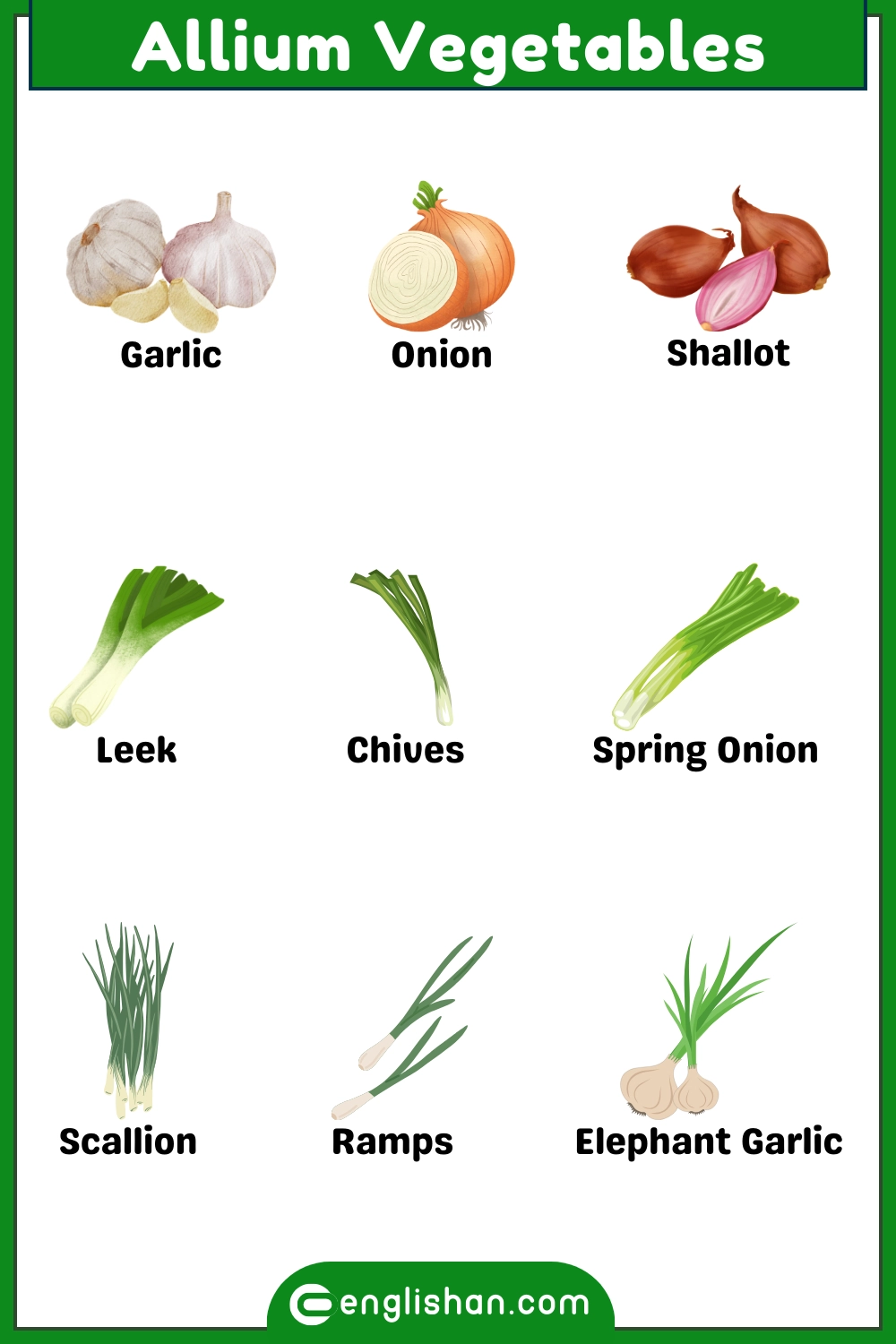
Legume Vegetables and Their Common Names
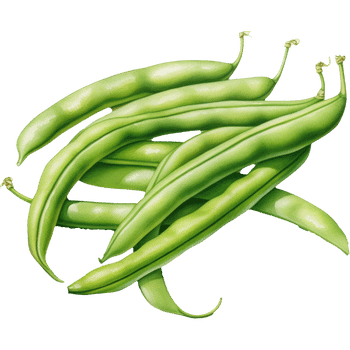
Green Beans
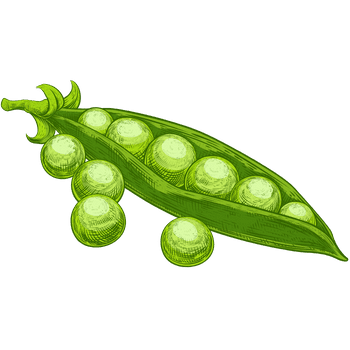
Peas

Chickpeas
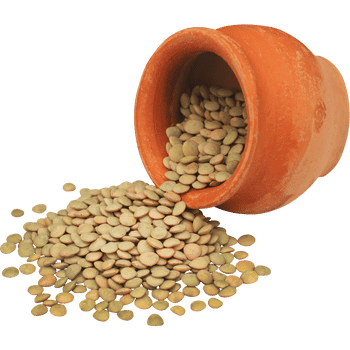
Lentils
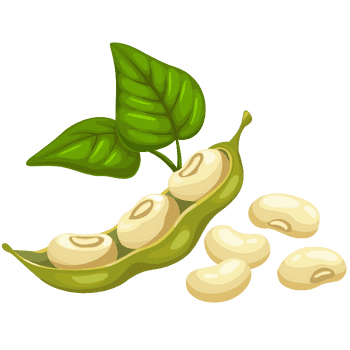
Soybeans

Black Beans

Kidney Beans

Pinto Beans

Lima Beans

Fava Beans

Edamame

Mung Beans

Navy Beans

Snow Peas

Broad Beans
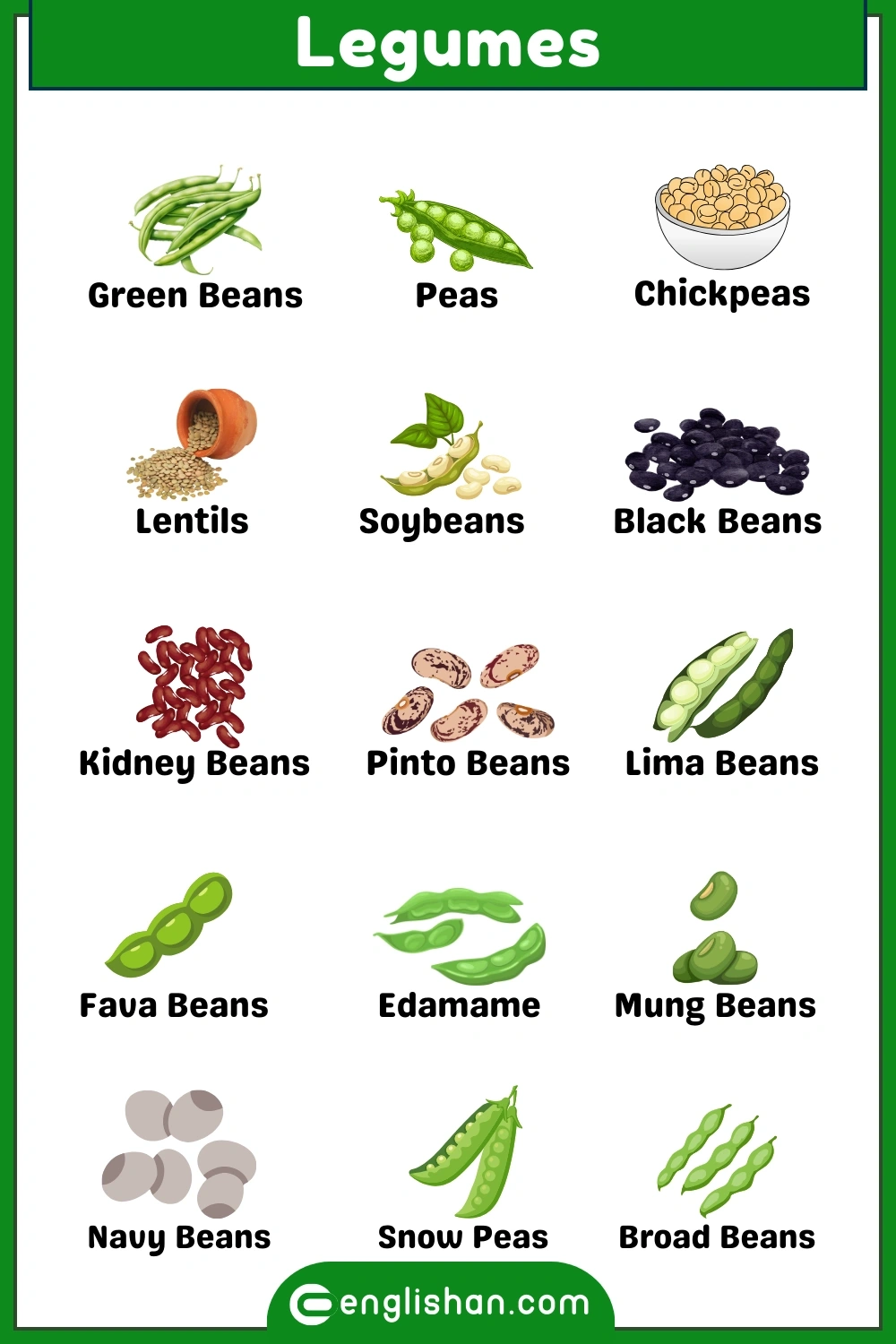
List of Stalk Vegetables Names
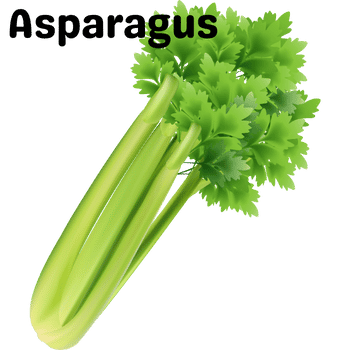
Celery
Celery is crisp and watery, great raw or in soups, and helps with digestion and hydration.

Asparagus
Asparagus is tender and slightly bitter, often grilled or steamed, and supports bones and eye health.
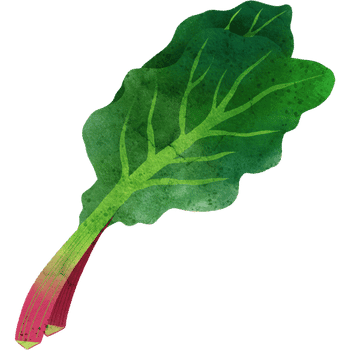
Rhubarb
Rhubarb is sour and used in desserts. Only the stalk is eaten; leaves are not safe.

Bamboo Shoots
Bamboo shoots are crunchy and mild. Common in stir-fries, they help digestion and add texture.
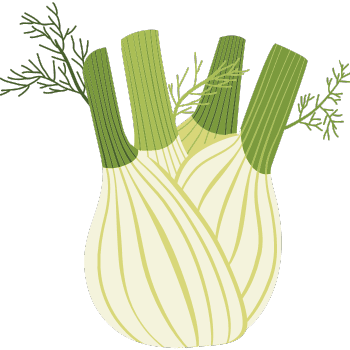
Fennel
Fennel is sweet with light licorice flavor. It’s eaten raw or roasted and helps your digestion.

Leek
Leeks are soft and sweet. Used in soups, they support heart and immune health.

Kohlrabi
Kohlrabi is crunchy and mild, like cabbage. It’s eaten raw or roasted and helps with immunity.

Cardoon
Cardoon is slightly bitter and used in soups or stews. It helps your stomach and health.
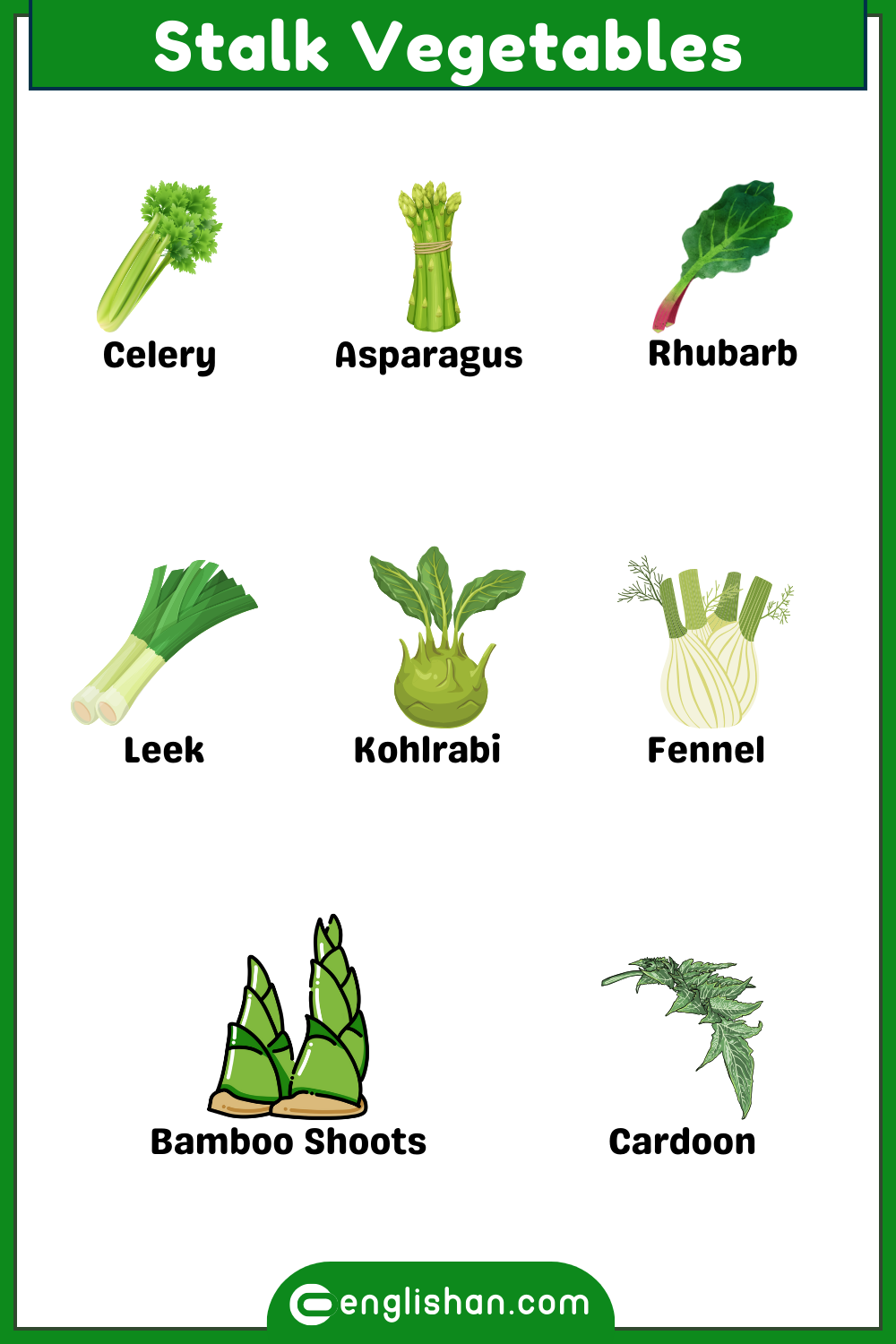
Nightshade Vegetables
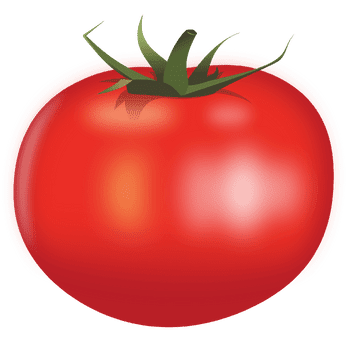
Tomato
Tomatoes are juicy and slightly sweet. They’re used in salads, sauces, and soups. Rich in vitamin C, they support heart health and reduce inflammation, making them versatile.

Eggplant
Eggplants have a mild flavor and a spongy texture. Often roasted or grilled, they promote digestion and reduce inflammation due to their fiber content.

Bell Pepper
Bell Peppers are sweet and crunchy, available in red, yellow, and green. They’re high in vitamin C, supporting immune health and skin, and often used in salads.

Jalapeno
Jalapenos add heat to dishes like salsas and stir-fries. Rich in vitamin C and capsaicin, they boost metabolism and give a fiery kick.

Chili Pepper
Chili Peppers are hot and spicy. They’re rich in vitamins A and C, which promote heart health, and are commonly used in sauces and curries.

Potato
Potatoes are starchy and versatile. They can be baked, roasted, or fried and are rich in potassium, supporting heart health.

Pimento
Pimentos are sweet and mild. They’re often used in stuffing olives and Southern cuisine, adding a soft flavor.
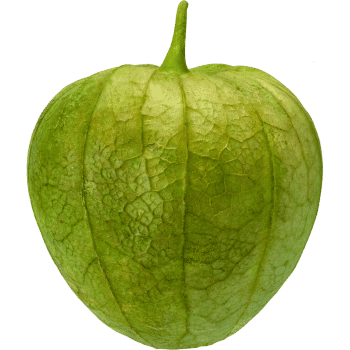
Tomatillo
Tomatillos are tangy and slightly tart. Their unique flavor pairs well with spicy dishes, especially in salsa verde.
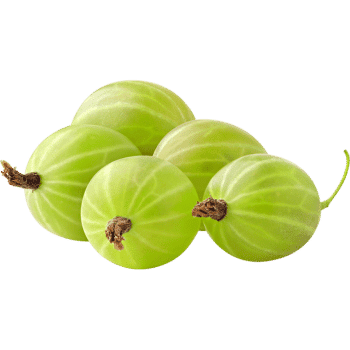
Gooseberry
Gooseberries are tart and slightly sweet, often used in jams or pies. They’re high in vitamin C and fiber, promoting immune health.
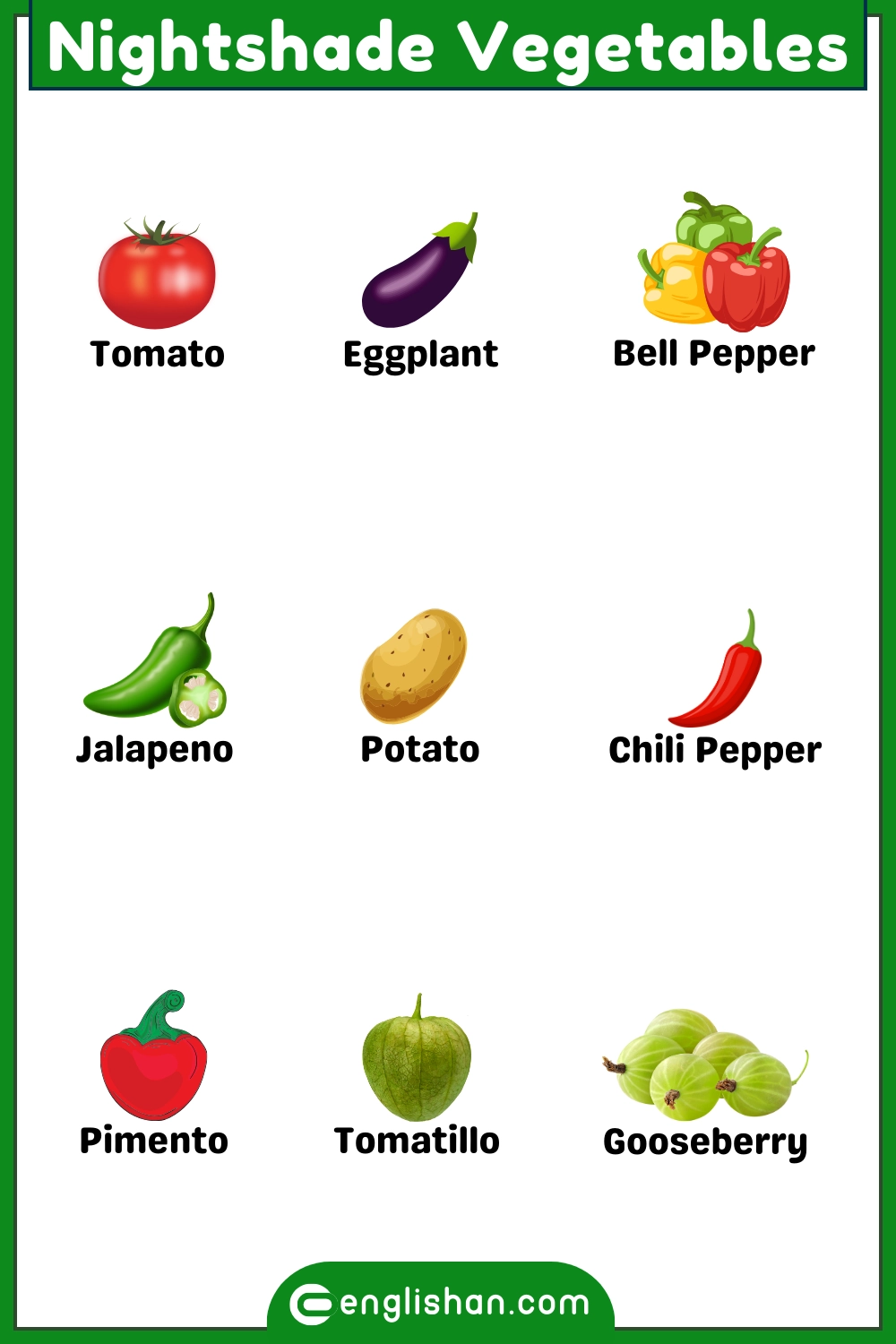
Podded vegetables and their names

Okra
Okra has a mild flavor and slightly slimy texture when cooked. It’s often used in soups, stews, or fried. Rich in fiber, vitamin C, and folate, okra promotes digestion and supports immune health. It’s a staple in Southern cuisine.

Snow Peas
Snow Peas are sweet and crisp, often used in stir-fries or eaten raw. They are high in vitamins A, C, and K, supporting bone and immune health. Snow peas add a fresh, crunchy texture to dishes.
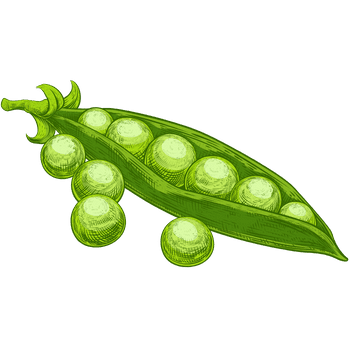
Snap Peas
Snap Peas have a sweet, crunchy texture and can be eaten raw or cooked. They are rich in fiber, vitamin C, and antioxidants, promoting digestion and heart health. Snap peas are often used in salads and stir-fries.
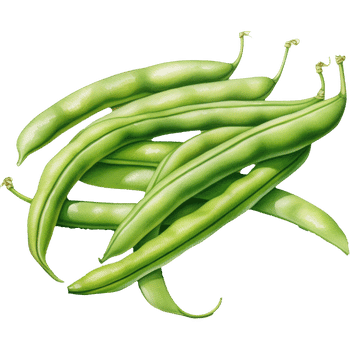
Green Beans
Green Beans are mild and slightly sweet, often steamed, sautéed, or added to casseroles. They are rich in vitamins A, C, and K, promoting bone and immune health. Their crisp texture makes them a popular side dish.

Sugar Snap Peas
Sugar Snap Peas are a hybrid of garden peas and snow peas, offering a sweet flavor and crunchy texture. They are rich in vitamins A, C, and K, supporting eye health and digestion. Often eaten raw or added to salads and stir-fries.
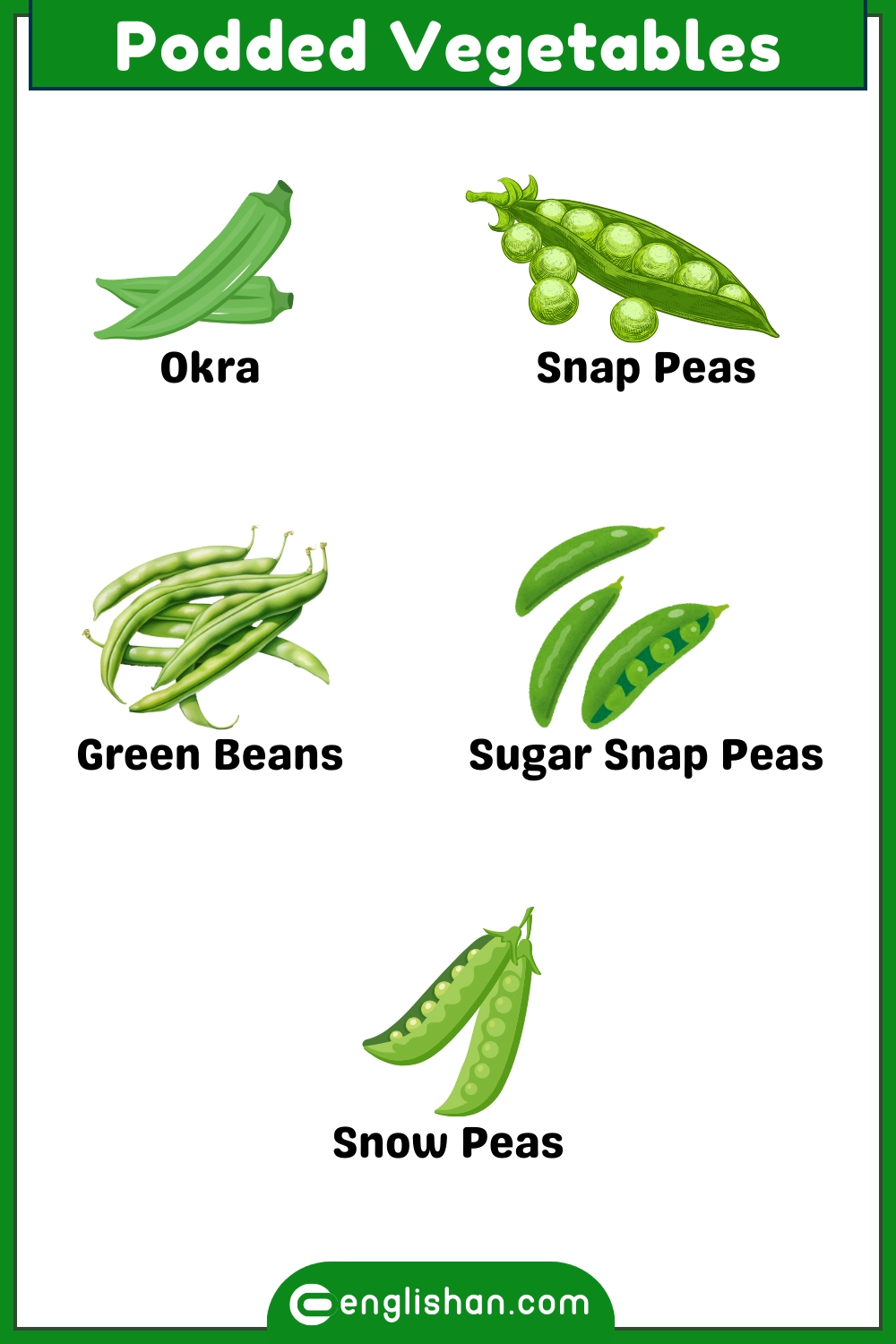
Bulb Vegetables

Onion
Onions have a sharp, sweet flavor when raw and become caramelized when cooked. They’re rich in vitamins C and B6, promoting immune health and reducing inflammation. Onions are used in nearly every cuisine, from soups to stir-fries.

Garlic
Garlic has a strong, pungent flavor and is used in a wide range of dishes. It’s rich in sulfur compounds, which support heart health and have anti-inflammatory properties. Garlic is often used fresh, roasted, or as a seasoning.

Shallot
Shallots are milder and sweeter than onions, often used in dressings, sauces, and roasted dishes. They are rich in vitamins A and C and provide antioxidant properties. Shallots add a subtle, sophisticated flavor to meals.

Fennel
Fennel has a mild, sweet flavor with a hint of anise and is often used in salads, soups, and roasts. Rich in fiber and vitamin C, it promotes digestion and immune health. Both the bulb and stalks are edible.

Leek
Leeks have a mild, sweet onion flavor and are often used in soups and stews. Rich in fiber, vitamins A and C, they support heart and immune health. Their tender texture makes them ideal for slow-cooking.

Elephant Garlic
Elephant Garlic has a milder flavor than regular garlic, with a subtle sweetness. It’s often roasted, used in sauces, or eaten raw. It’s rich in vitamins B6 and C and supports heart health and immune function.
Flower Vegetables

Broccoli
Broccoli is packed with vitamins C and K and known for its antioxidant properties. It has a slightly bitter, earthy flavor and is often steamed, roasted, or used in salads. Broccoli supports immune health and reduces inflammation.
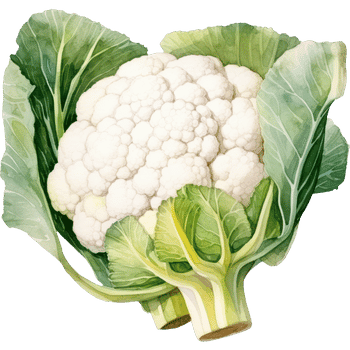
Cauliflower
Cauliflower is mild and versatile, often roasted, mashed, or used as a low-carb substitute in dishes. Rich in vitamins C and K, it promotes bone and immune health. Its neutral flavor makes it adaptable to various cuisines.
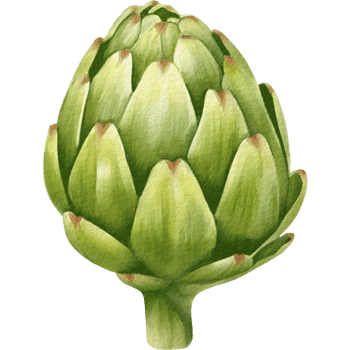
Artichoke
Artichokes have a slightly nutty and earthy flavor and are often boiled, steamed, or grilled. They are rich in fiber and antioxidants, promoting heart health and digestion. The tender heart is the most prized part of the vegetable.

Squash Blossoms
Squash Blossoms have a delicate, mild flavor and are often stuffed, battered, and fried. Rich in vitamins A and C, they support eye and immune health. Their unique appearance makes them a favorite for gourmet dishes.
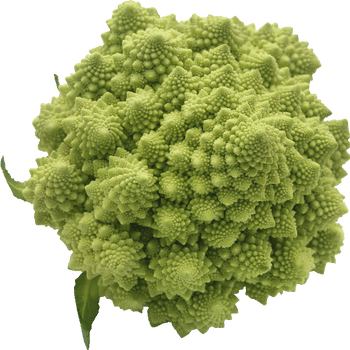
Broccoflower
Broccoflower is a hybrid of broccoli and cauliflower, offering a mild, slightly sweet flavor. Rich in vitamins C and K, it supports bone health and digestion. It can be roasted, steamed, or added to salads.
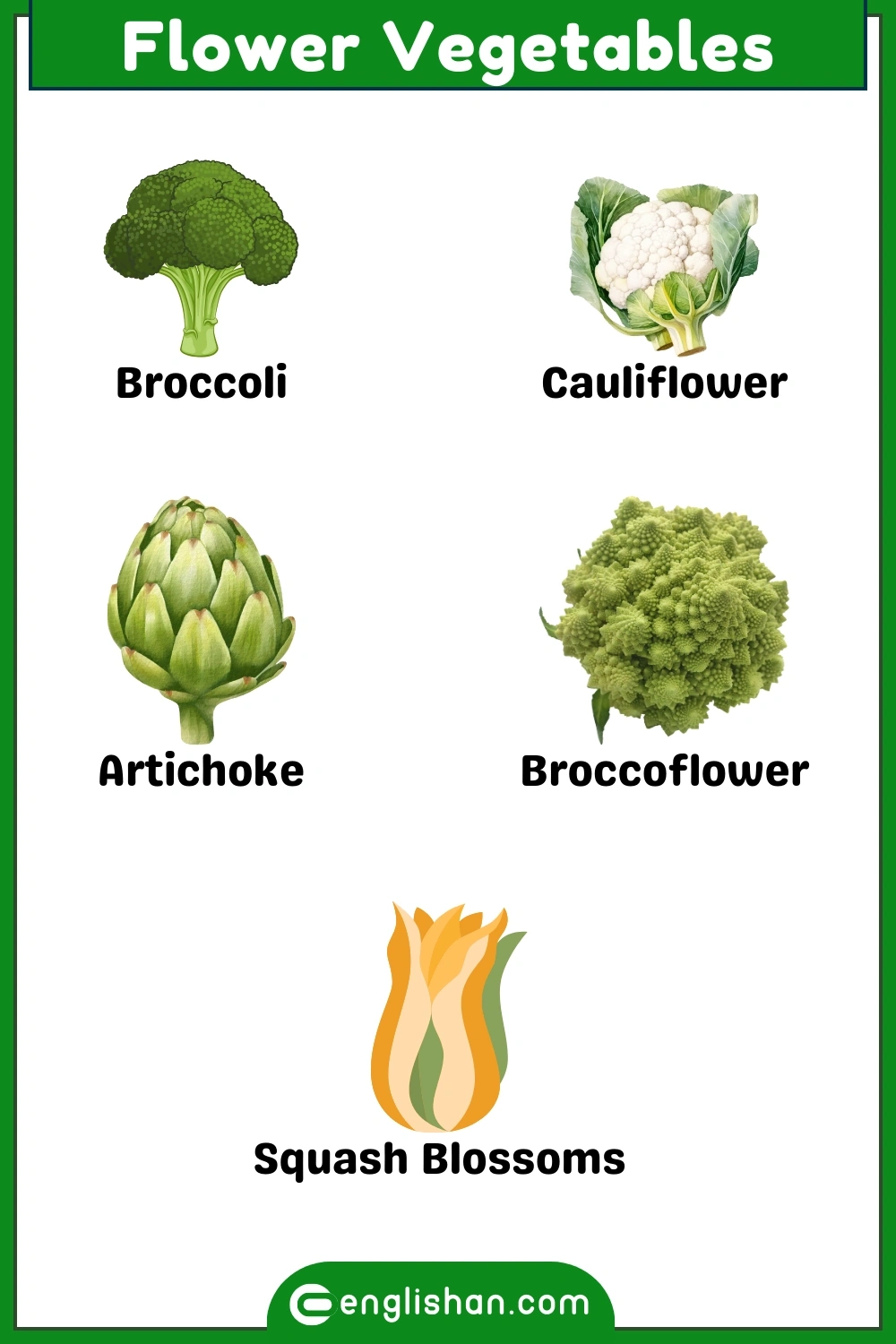
Fungi Veggies Names
Fungi are not true plants but are eaten like vegetables. Below is a list:

Mushroom

Shiitake

Portobello

Oyster Mushroom

Button Mushroom

Enoki

Cremini

Maitake

Morel

Chanterelle

Porcini
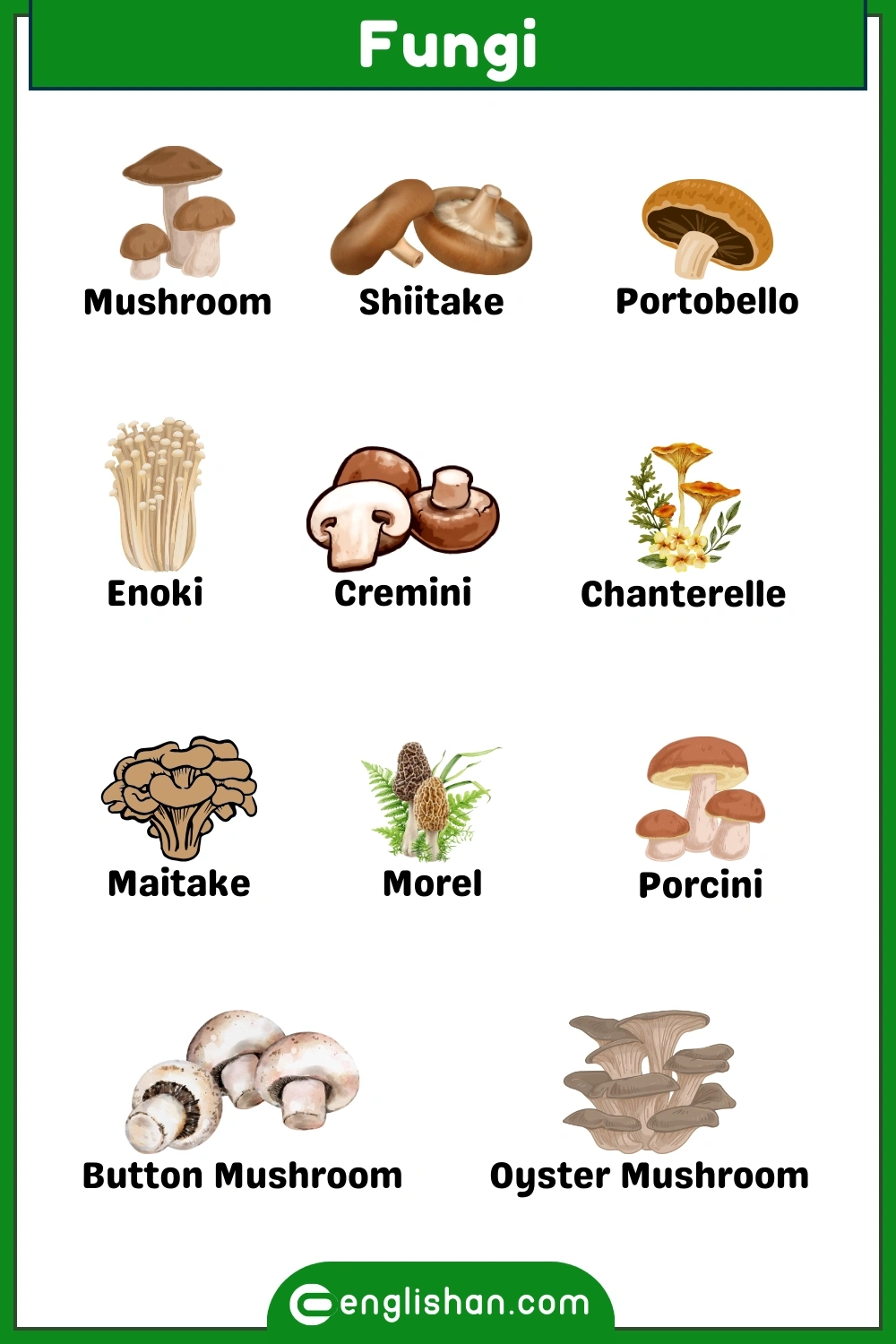
Yellow-Colored Vegetables
Yellow vegetables are bright in color and rich in vitamins like A and C. Below is a list of yellow vegetables:
- Yellow bell pepper
- Yellow squash
- Corn
- Yellow zucchini
- Yellow carrot
- Golden beets
- Yellow tomatoes
- Yellow beans
- Spaghetti squash
- Yellow pumpkin
- Yellow chili pepper
- Yellow potato
- Yellow cucumber
- Yellow wax beans
- Golden zucchini
- Button mushroom
- Oyster mushroom
- Shiitake mushroom
- Enoki mushroom
- Portobello mushroom
- Cremini mushroom
- White mushroom
- Maitake mushroom
- Morel mushroom
- King oyster mushroom
Edible Stem Vegetables
Below is a list of vegetables eaten for their stems:
- Celery
- Asparagus
- Leek
- Bamboo shoots
- Kohlrabi
- Rhubarb
- Spring onion
- Garlic scape
- Sugarcane
- Lotus stem
- Fennel stem
- Cardoon
- Scallion
- Taro stem
- Banana stem
- Water spinach stalk
Seasonal Vegetables for Summer and Winter
Below is a list of vegetables grouped by season:
- Tomato
- Cucumber
- Eggplant
- Bitter gourd
- Snake gourd
- Bottle gourd
- Pumpkin
- Okra
- Zucchini
- Ridge gourd
- Green beans
- Ivy gourd
- Cluster beans
- Raw banana
- Corn
- Sponge gourd
- Ash gourd
- Chow chow
- Cauliflower
- Broccoli
- Carrot
- Radish
- Turnip
- Green peas
- Spinach
- Cabbage
- Mustard greens
- Methi
- Bathua
- Leek
- Red cabbage
- Brussels sprouts
- Parsnip
- Onion
- Garlic
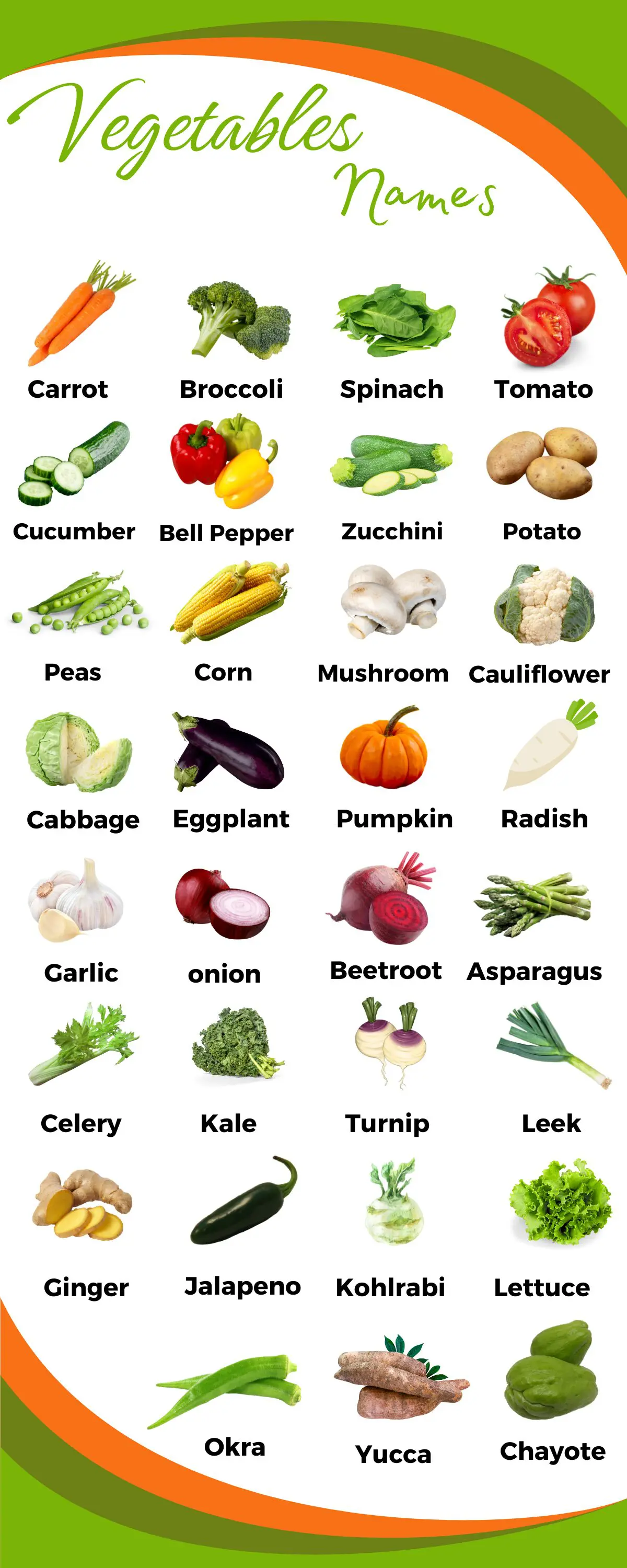
List of Vegetables Names for Kids
This section includes simple and familiar vegetables names that kids can learn easily. These vegetables are common, colorful, and often found in everyday meals. Below is a list of vegetables for kids:
- Carrot
- Potato
- Tomato
- Cucumber
- Peas
- Corn
- Broccoli
- Cauliflower
- Lettuce
- Spinach
- Pumpkin
- Onion
- Garlic
- Bell pepper
- Beans
- Sweet potato
- Eggplant
- Zucchini
- Radish
- Turnip
Indian Vegetables Names with English Translation
Below is a table of common Indian vegetables:
| English Name | Hindi Name |
|---|---|
| Potato | Aloo |
| Tomato | Tamatar |
| Onion | Pyaaz |
| Garlic | Lahsun |
| Spinach | Palak |
| Bottle gourd | Lauki |
| Bitter gourd | Karela |
| Eggplant | Baingan |
| Mustard greens | Sarson |
| Green beans | Sem |
| Pumpkin | Kaddu |
| Okra | Bhindi |
| Turnip | Shalgam |
| Cabbage | Gobhi |
| Fenugreek leaves | Methi |
All Vegetable Types at a Glance

Want to help children remember veggie names faster? Try using the Easy Vegetable Names for kids to keep things simple and engaging.
Red-Colored Vegetables
- Tomato: Juicy and slightly sweet, great for salads and sauces. Rich in lycopene, supports heart health.
- Red Bell Pepper: Sweet and crunchy, loaded with vitamin C, perfect for roasting and salads.
- Radish: Crisp and peppery, eaten raw or pickled, contains vitamin C and fiber.
- Beetroot: Earthy and sweet, often roasted or boiled, rich in folate and iron.
- Red Chili Pepper: Spicy and hot, used to add heat to dishes, contains capsaicin which boosts metabolism.
- Red Onion: Mildly sweet and pungent, used raw in salads or cooked for flavor.
Purple-Colored Vegetables
- Eggplant: Mild taste, spongy texture, great grilled or baked, high in fiber.
- Purple Cabbage: Crunchy, slightly peppery, full of antioxidants and vitamins.
- Purple Carrots: Similar to orange carrots but richer in antioxidants, sweet flavor.
- Beets: Sweet and earthy, rich in antioxidants and nitrates for blood pressure control.
- Purple Cauliflower: Colorful variety of cauliflower, mild flavor, great steamed or roasted.
- Purple Sweet Potato: Sweet with a nutty flavor, packed with antioxidants and vitamins.
High-Protein Vegetables
- Green Peas: Sweet, tender, good source of protein and fiber, often in soups and sides.
- Lentils: Earthy flavor, protein-packed, supports muscle growth, great in stews and salads.
- Chickpeas: Nutty taste, high protein and fiber, used in hummus and curries.
- Edamame: Young soybeans, high protein snack, boiled or steamed.
- Black Beans: Dense and protein-rich, used in chili and salads, good for energy.
- Kidney Beans: Firm texture, high in protein and fiber, commonly used in stews and rice dishes.
Vitamin-Rich Vegetables
- Carrots: Sweet and crunchy, loaded with vitamin A for eyesight.
- Spinach: Slightly bitter, rich in vitamins A, C, and K, supports immunity.
- Sweet Potato: Sweet, rich in vitamins A and C, supports skin health.
- Broccoli: Slightly bitter, packed with vitamins C and K, supports immune system.
- Bell Peppers: Available in red, yellow, and green; rich in vitamins A and C.
- Kale: Leafy green with a slightly bitter taste, rich in vitamins and antioxidants.
Fiber-Rich Vegetables
- Broccoli: High fiber content, good for digestion, often steamed or roasted.
- Brussels Sprouts: Crunchy with a slightly bitter flavor, high in fiber and vitamins.
- Carrots: Contains soluble fiber that aids digestion and controls blood sugar.
- Artichokes: High in fiber and antioxidants, supports gut health.
- Parsnips: Sweet root vegetable, rich in fiber and vitamins, good for digestion.
- Sweet Corn: High in fiber, adds crunch and sweetness to dishes.
Vegetables Used in Salads
- Cucumber: Crisp and watery, refreshing, low calorie, high in vitamins.
- Lettuce: Mild flavor, base for most salads, high water content.
- Cherry Tomatoes: Small, sweet, juicy, adds color and flavor.
- Bell Peppers: Crunchy, sweet, colorful, rich in vitamins.
- Radishes: Crisp and peppery, adds spice and crunch.
- Carrots: Shredded or sliced, sweet and crunchy in salads.
- Avocado: Creamy texture, rich in healthy fats, adds richness to salads.
Vegetables Common in Asian Cooking
- Bok Choy: Mild and crunchy, used in stir-fries and soups, rich in vitamins.
- Bamboo Shoots: Crunchy, mild flavor, common in Asian stir-fries and soups.
- Water Chestnuts: Crisp texture, slightly sweet, adds crunch to dishes.
- Napa Cabbage: Tender, essential in kimchi and stir-fries.
- Snow Peas: Sweet and crunchy, often used in stir-fries and salads.
- Chinese Long Beans: Thin and crunchy, cooked in stir-fries or curries.
Vegetables Used in Mediterranean Cooking
- Eggplant: Used in dishes like moussaka and ratatouille, softens when cooked.
- Zucchini: Mild and tender, grilled or roasted, used in salads and stews.
- Artichokes: Often steamed or marinated, rich in fiber and antioxidants.
- Tomatoes: Key ingredient in sauces and salads, rich in vitamins and antioxidants.
- Olives: Small, salty fruits used whole or for oil, rich in healthy fats.
- Fennel: Crunchy with a licorice flavor, eaten raw or cooked.
Rare and Exotic Vegetables
- Romanesco Broccoli: Unique fractal-shaped vegetable, mild and nutty flavor.
- Kohlrabi: Bulb-like stem, crunchy and mild, eaten raw or cooked.
- Sunchokes: Also called Jerusalem artichokes, nutty flavor, good for digestion.
- Fiddlehead Ferns: Young fern shoots, crunchy with grassy flavor, eaten cooked.
- Oca: A colorful tuber from the Andes, tangy and crunchy, eaten boiled or roasted.
- Lotus Root: Crunchy and starchy, used in Asian soups and stir-fries.
Sweet and Bitter Vegetables by Taste
- Sweet Vegetables: Corn, carrots, sweet potatoes, sugar snap peas—great for roasting or raw eating.
- Bitter Vegetables: Bitter gourd, dandelion greens, kale—often cooked to reduce bitterness.
- Sour Vegetables: Pickled cucumbers, sauerkraut, kimchi—used for tangy flavor and probiotics.
- Spicy Vegetables: Radishes, arugula, mustard greens—add peppery heat to dishes.
- Umami Vegetables: Mushrooms and tomatoes provide a savory, rich flavor to meals.
FAQs About Vegetables
Here are some common vegetable names in English along with their translations in Urdu:
1. Carrot – گاجر (Gajar)
2. Potato – آلو (Aloo)
3. Onion – پیاز (Piaz)
4. Tomato – ٹماٹر (Tamatar)
5. Cucumber – کھیرہ (Kheera)
6. Spinach – پالک (Paalak)
7. Broccoli – بروکلی (Broccoli)
8. Cauliflower – گوبھی (Gobhi)
9. Bell pepper – شملہ مرچ (Shimla Mirch)
10. Peas – مٹر (Matar)
11. Garlic – لہسن (Lehsan)
12. Radish – مولی (Mooli)
13. Lettuce – سلاد پتہ (Salad Patta)
14. Kale – کیل (Kale)
15. Eggplant – بیگن (Baingan)
These are just a few examples of vegetables and their names in Urdu.
To practice what you’ve learned, check out the Vegetables Practice Worksheets that test your recall.
You May Also Like
